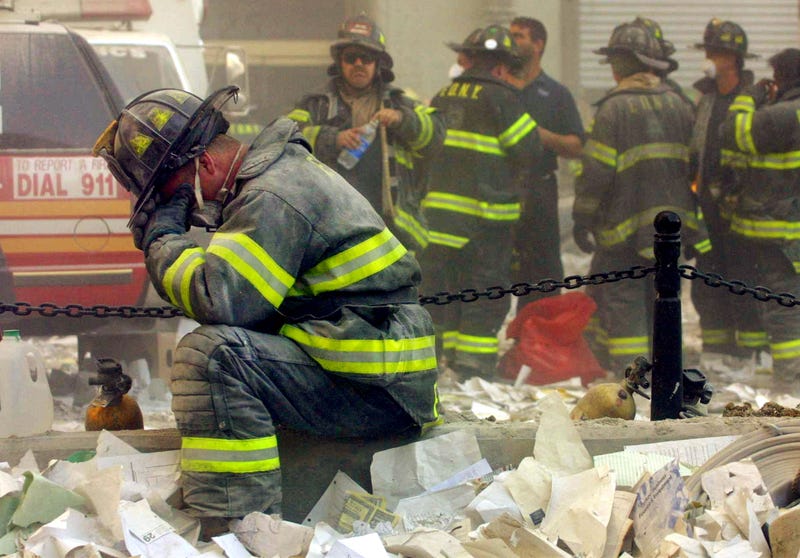NEW YORK (WCBS 880) -- This year marks the 20th anniversary of one of the greatest tragedies in American history: 9/11. Although the terrorist attacks across the nation happened within a few hours of each other, decades later the country is still hurting - and not just emotionally.
In the years since the attacks, several hundreds of people who were simply at or near the scene have succumbed to illnesses as a result of inhaling the debris.
While there is a larger focus on post-9/11 pain now, in an interview uncovered by WCBS 880’s Tim Scheld from just days after the attacks, it’s revealed that a concern about the air quality existed even then.
“I know they don’t want to cause panic, and if they would actually tell us what the air condition is right now they probably would cause a huge panic downtown and they can’t handle that. Nobody can blame them for that,” Benjamin Buchlo, a local resident at the time, said.
Thankfully, one group of local experts also predicted a public health crisis would literally rise from the ashes. To combat the crisis, the World Trade Center Health Program was born. To this day, it monitors the treatment of 9/11 related conditions in first-responders and survivors.

In this week’s 880 IN DEPTH Podcast, we explore the hidden pain of 9/11 and the long-term effects from that fateful day that still linger now.
We speak to Dr. Michael Crane, who is the Medical Director of the World Trade Center Health Program at Mt. Sinai.
“Even now, the total contents of that dust cloud are uncertain. It was an unknown exposure,” Crane says, in regards to the air quality that day. But the effects of the air aren’t the only things still being felt today. There’s plenty of PTSD too.
As the 20th anniversary looms, Crane wants to emphasize that now is the time for both survivors and physicians, “to do an honest assessment of themselves.” Not only because the mental strain can keep them from moving on, but because the help is there.
We also speak to Michael Barasch, the managing attorney for the NYC-based law firm of Barasch & McGarry. Helping families of victims and survivors through the World Trade Center Health Program and Victims Compensation Fund has been his life’s work.
Despite being locally based, he wants to emphasize the event’s national effects. “Firefighters and cops and other volunteers came from all over the country to help out,” he says, “and when they went home they brought with them those same toxins [as everyone else].”
Lastly, we speak to Dr. Paula Madrid, who worked with Children’s Health Fund shortly after the attacks. She points out that the psychological effects in children could be the ones that last longest.
She adds that every year (including major milestones like this one) no matter how old they were at the time of the event, they could unintentionally experience something known as the “anniversary effect,” or thoughts triggered by any reminder of that event.
Listen to the full conversation above, on the Audacy app, or wherever you get your podcasts.
